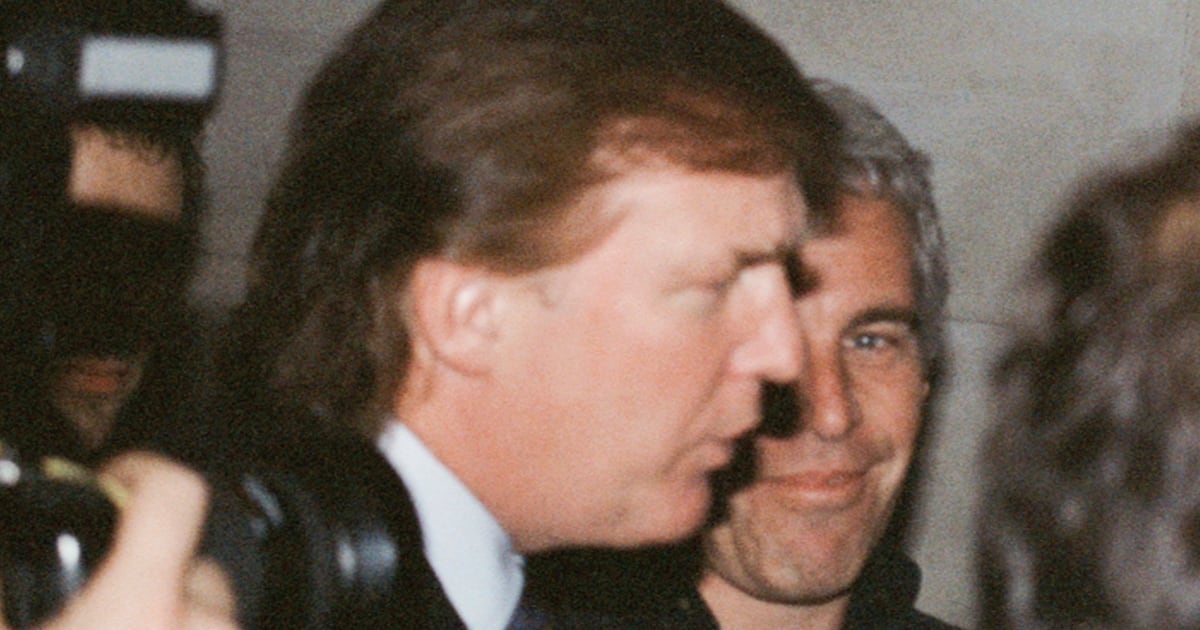“Who’s next?”
It’s the only question that anyone who is obsessed with media, celebrity, and justice has been asking ever since Oct. 5, the day the Harvey Weinstein story broke, unleashing a never-ending tidal wave of truth-telling in the media—and across social media—regarding past incidents of sexual assault, sexual harassment, and the many intimidation tactics used to cover those secrets up.
For a dedicated group of commenters over at a website called Crazy Days and Nights, run by an anonymous entertainment lawyer who goes by the name “Enty Lawyer,” the speculation is particularly rampant. Why? Because he has been calling out many of Hollywood’s now-ostracized sexually misbehaving elite, sometimes years in advance of the mainstream media.
“If you had been reading @entylawyer, you’d have known about Matt Lauer. And Harvey. And Kevin Spacey. Just saying,” tweeted New York professional Sara Zucker. Or as investigative journalist Mark Ebner (one of only 20 people who knows the blogger’s real-life identity) observes, “Enty Lawyer is like the anti-Perez Hilton. In my opinion, that’s what makes him so impressive, is that no one knows who he is, and he’s being proven right again and again. That’s like legendary shit.”
On Harvey Weinstein, a 2016 item on Enty’s site reads, “Her career could have crashed and burned when she refused the legendary advances of this producer/mogul. He threatened to destroy her career but she found a mentor who actually is not afraid to go to war with the mogul and the mogul backed down.”
On Kevin Spacey, a 2012 item he ran reads, “This A+ list movie actor has always had a bit of a shady reputation behind the scenes.”
On James Toback, a 2013 item reads, “This former A-list movie director who still thinks he is the hottest thing on the planet has not done anything worth noting for many years… he has been the worst casting couch director there has ever been.”
On Matt Lauer, a 2014 item reads, “This television talk show host likes to show the world that he has the perfect marriage and life but he rarely sleeps at home at night any longer and has quietly been hooking up with a woman who used to be an employee…”
“My site has always been about the underdog and the victims,” Enty told The Daily Beast in an exclusive interview. (The Daily Beast confirmed Enty’s identity through other entertainment lawyers in the industry who spoke on condition of anonymity.) “Hollywood, since the beginning of time, has been filled with Harvey Weinsteins. And for a long time, it was covered up, and it was covered up with the help of the media. The gossip columnists were paid off or they were sued to oblivion.”
Not only that, he says, they were often acting as “access journalists,” trading favors and begging for face time rather than trying to observe as a critical member of the Fourth Estate. “As a result, I think many of these celebrities assume rightfully that they were able to get away with something because they were rich or famous or powerful and for a long time, it’s been happening, and now people want justice. Finally, people are getting what they deserve.”
The Weinstein effect is having so many far-reaching societal ramifications that it would be easy to overlook this very one: the unlikely redemption of the blind item. Long considered one of the staples of the gossip industry, the blind item implicates people via coded clues, hints, and pointed descriptions, and is finally making its way into mainstream reporting, both print and television. And, as has been the case for the past two weeks, it is also literally changing the face of television.
Charlie Rose, who one day is asking New York Times reporter Jodi Kanter, “What should be the conversation now about sexual harassment?” is the next felled and fired after a Washington Post investigation finds eight women who accuse him of sexual harassment. It was only right before Thanksgiving that Matt Lauer was making his usual not-too-bawdy-for-morning-TV giggling-at-double-entendres banter at the helm of Today and asking Jon Stewart about his recently disgraced comedian-friend Louis C.K.
Stewart’s musing is chillingly prescient. “I don’t want to make this like, ‘Louis was the only one in the business...’ it’s not, it’s endemic,” Stewart told Lauer. “I imagine you walk through 30 Rock and... I think it’s a question of, we’re used to being in charge, and I think if you talk to women, they’re in a very difficult position. You get mad at yourself too for laughing it off or thinking ‘That didn’t happen.’”
To re-listen to the interview today, in retrospect, the phrasing of Lauer’s question to Stewart feels particularly tone-deaf.
Seemingly apologizing for having to even address a blind item-level topic at all, Lauer says, “I need to—while you’re here—ask you for your comment on something quickly. Your friend and colleague Louis C.K. has been accused and has admitted to some lewd acts involving women. What was the impact on you…?”
In the not even two months since the Weinstein story broke and unleashed an assault of media truth-telling, an endless downfall of power players in Hollywood who once seemed untouchable have in the weeks since become actually untouchable.
At the forefront of the Weinstein effect is a man about as far from the protective folds of the blind item as possible: the respected lawyer, journalist, and TV host Ronan Farrow, who publicly called out the media in 2016 for not asking tough questions and continuing to embrace alleged abusers such as his father, Woody Allen. A few observers have gone so far as to call this period we are now in “Ronan’s Revenge.” Consider that in 1994, it was Weinstein himself who revived Allen’s scandalized, nearly ruined career. After falling from grace in the industry after Mia Farrow accused him of abuse during their custody scandal, Weinstein, then at Miramax, swooped in to resuscitate Allen’s prospects by agreeing to provide film distribution for Allen’s latest, Bullets Over Broadway.
Weinstein’s lavish words of praise and defense of Allen to the Los Angeles Times 23 years ago appear jaw-dropping by today’s standards.
“Shunned by Hollywood means nothing to Miramax,” Weinstein asserted. “We’re talking about a comic genius. Chaplin was shunned by Hollywood; so were a great many other international filmmakers, including Fellini—and those are the people who belong with Miramax.”
Ronan Farrow told the Hartford Courant that while there is “no factual link between” his own experience with abuse allegations against his estranged father, he said, “I have been part of a family where we’ve had to grapple with the complex cost-benefit analysis” of making these accusations. For a long time, Ronan told the Courant, “I said it was better to move forward—don’t let this cast a shadow.” But after his sister went public in 2014, he said, “I realized I was wrong. I realized the healing value of the truth.”
While the early October New York Times Weinstein investigation did precede Ronan Farrow’s explosive New Yorker exposé on the movie mogul by just five days, this would not have been the case if NBC had not killed Ronan’s story a year earlier, a fact the journalist makes abundantly clear in his ultimate mic-drop of a #TBT on his Instagram on Thanksgiving. In his post, Ronan is pictured on-set at NBC interviewing Rose McGowan a year earlier for what would have been the scoop to end all scoops for NBC before it was ultimately killed, with Ronan’s caption: “Thankful for the women and men who have come forward with painful stories and helped to chip away at a culture of silence. When I sat down for this interview almost a year ago, the world was a different place.”
Was it ever. In fact, it was also a year ago, with the backdrop of Allen’s Cannes premiere of Café Society, that Ronan Farrow issued his rousing call-to-arms in an opinion piece he wrote for The Hollywood Reporter called “My Father, Woody Allen, and the Danger of Questions Unasked.” He appealed to journalists of a “new generation, freed from the years of access journalism that can accrete around older publications,” while simultaneously blasting the “culture of impunity and silence” in media and Hollywood that ignored his sister’s renewed allegations against their father (in a piece she authored in 2014 for The New York Times: “An Open Letter From Dylan Farrow”). (Allen denies such allegations.)
Appealing to the media at large, Ronan Farrow’s piece concluded: “It’s time to ask some hard questions.”
What are the questions to ask? Some of them might be found within the pages of blind item sites like Enty Lawyer’s.
The most popular blind item on Enty’s blog right now involves a “Rocker…convicted of ‘Contributing to the Delinquency of a Minor,’ given a $2,500 fine and put on probation.” In 2018, the blind item predicts, one of the underage girls who was there the night an underage prostitute nearly overdosed on drugs is going to come forward and tell her story.
Is the story true? Who is the story even about? Who’s next?
The Daily Beast certainly can’t say. But the blind item is a near parable in comparing and contrasting old-school media coverage and the modern rehashing of no-longer-just-taken-for-granted “bad boy” behavior.
For instance, did you know that in 1980, the rocker Don Henley was convicted of “Contributing to the Delinquency of a Minor,” given a $2,500 fine and put on probation? And that the police officer who handled the arrest was disgraced years later? How did the media handle this? One need only look at GQ’s 1991 interview that falls head over heels complimenting Henley on his noble handling of the situation:
“Around 9 a.m., on November 21, 1980, Henley called the L.A. Fire Department, seeking medical aid for someone at his home who appeared to be having a seizure. That someone was a prostitute, who turned out to be suffering from after-effects of Quaaludes and cocaine and who also turned out to be 16 years old. Hours later that day, police came to Henley’s home and arrested him, after reportedly finding quantities of cocaine and marijuana in the house. This is Henley’s least favorite topic, but when asked about it, he is admirably straightforward… ‘I took complete blame for everything. I was stupid; I could have flushed everything down the toilet. I didn’t want this girl dying in my house; I wanted to get her medical attention. I did what I thought was best, and I paid the price.’”
Yes, so admirably straightforward, indeed.
In interviews since, Henley refuses to discuss the topic at all.
The 1980s, the 1990s, even Oct. 4, 2017, was, as Ronan Farrow might say, a very different world.
“For so long, the blind item operated in the darker corners of the entertainment world, exposing the underbelly of Hollywood, but never given the light of day,” observes Enty of the utter reporting revolution that has occurred over the past few months. “It is only because of people like Ronan Farrow, who uses his pulpit for good rather than just access, that these long-hidden blind items are being exposed for what they often are: truth. We all need to be asking way more questions. Protecting victims is the noblest cause there is.”
It’s not just about “dirty laundry.” It’s about justice.






